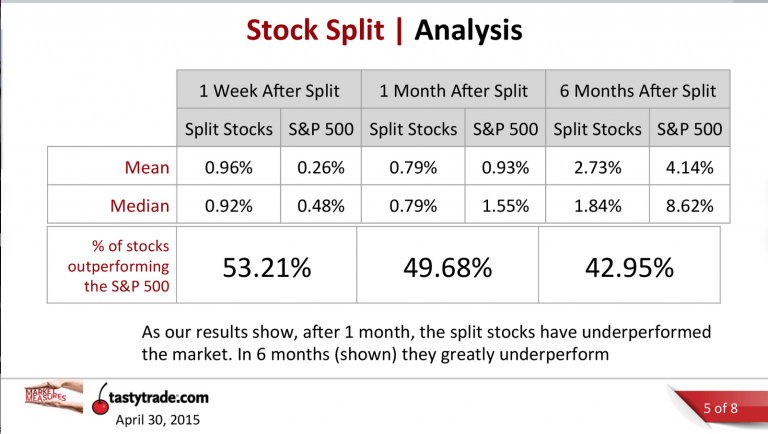
Stock splits do not alter the fundamentals of the company in any way, apart from the short-term price increases we described earlier. “All this said, for long-term investors in a stock, a stock split (or reverse split) really doesn’t affect the fundamental value of the company or the wealth in your pocket.” Does the Company Change? What is noticeable is the trading volume of the stock which might be attributed to news flow,” says Morningstar Canada’s director of Investment Research Ian Tam. “When we look at a company like Apple and strictly observe the value of an investment immediately after a stock split, there really isn’t a discernable pattern in the change in wealth. Perhaps the psychology of owning at least one whole share is at play in the companies’ decisions. Buying and selling stocks is now easier than ever, and for many investors these recent splits might be an entry point into companies they have long admired.Īll this being said, these recent high-profile splits seem superfluous given that most brokerage platforms now enable trading in fractional shares. This is especially true now with more and more investors having access to low-cost trading platforms. A stock price of $128-odd would be much more manageable, both for me and for many others. Now if the stock split were to happen as of Tuesday’s close, the cost of each share would go from $2,572.88 to $128.64, and each existing holder would get 19 additional shares for every share they own. Many investors (myself included) would not be able to invest in Alphabet, because I do not have $2500-odd to invest in one share of one company. It closed Tuesday, February 1, at $2,572.88. The value of the company doesn’t increase when a split occurs, therefore the value of your stocks, your shares, doesn’t change, either. If the share price becomes more affordable for smaller investors, it can reasonably be assumed that more investors will participate, and so the overall liquidity of the stock would increase as well.īut remember this with stock splits: Though the number of outstanding shares changes, and though the price of each share changes, the company's overall market capitalization stays the same. In most cases, stock splits are undertaken by companies when the share price has gone up significantly, particularly in relation to a company’s stock market peers.
:max_bytes(150000):strip_icc()/nvda1-98b0d8de45d9499a8796edddd4d18382.jpg)
The smaller the dollar amount of each share, the smaller number of shares are needed by even the smallest investor to buy or sell that stock. Liquidity means the ease with which investors can buy or sell shares on a stock exchange. Why do companies announce stock splits? Stock splits are a way for companies to increase their overall liquidity. Sticking with the dark chocolate bar analogy, after breaking the bar into smaller bits, you have smaller bits of dark chocolate, not more chocolate overall. The fundamentals of the company and the stock price have not changed. This does not mean that the stock has become cheaper. In this example of a 2-for-1 split, if you had one share of Company X at $10 per share, you now have two shares of Company X at $5 per share. For example, if a company board announces a 2-for-1 split, then you get one extra share for each share you own - but the share price will be halved. Similarly, in a stock split, it is very important to remember that the price of the share also is reduced. You still have the same amount of chocolate, just in smaller segments. Your one big dark chocolate bar is broken down into multiple bite-size pieces. Think about it like a dark chocolate bar.

The value of your holdings is the same, just in smaller chunks. One share gets divided, or split, into multiple shares. Simply put, a stock split is exactly what it sounds like.

And, Apple ( AAPL) split its stocks in 2020.

Back in July 2021, Nvidia ( NVDA) had a 4-1 split. Moreover, Alphabet ( GOOGL), the parent company of Google, announced plans for a 20-1 stock split in February. The upcoming 20-1 stock split is set to take effect on June 6, meaning that for each share of Amazon you own, you would get an additional 19 shares. Earlier this month, ( AMZN) announced plans for its fourth stock split since 1998. The announcement follows a raft of stock split announcements.


 0 kommentar(er)
0 kommentar(er)
